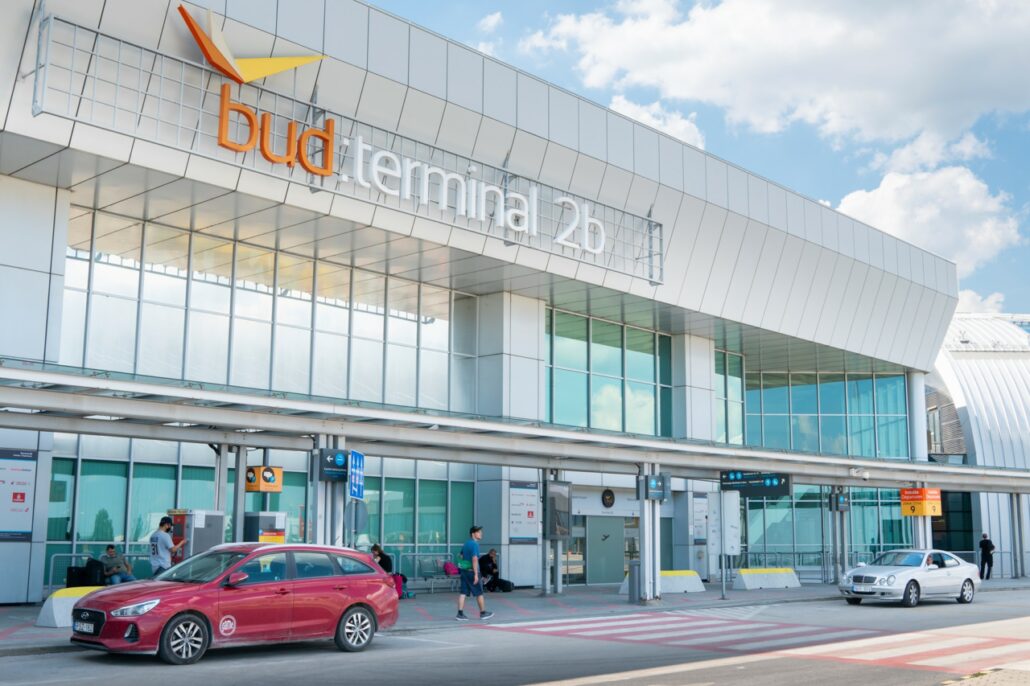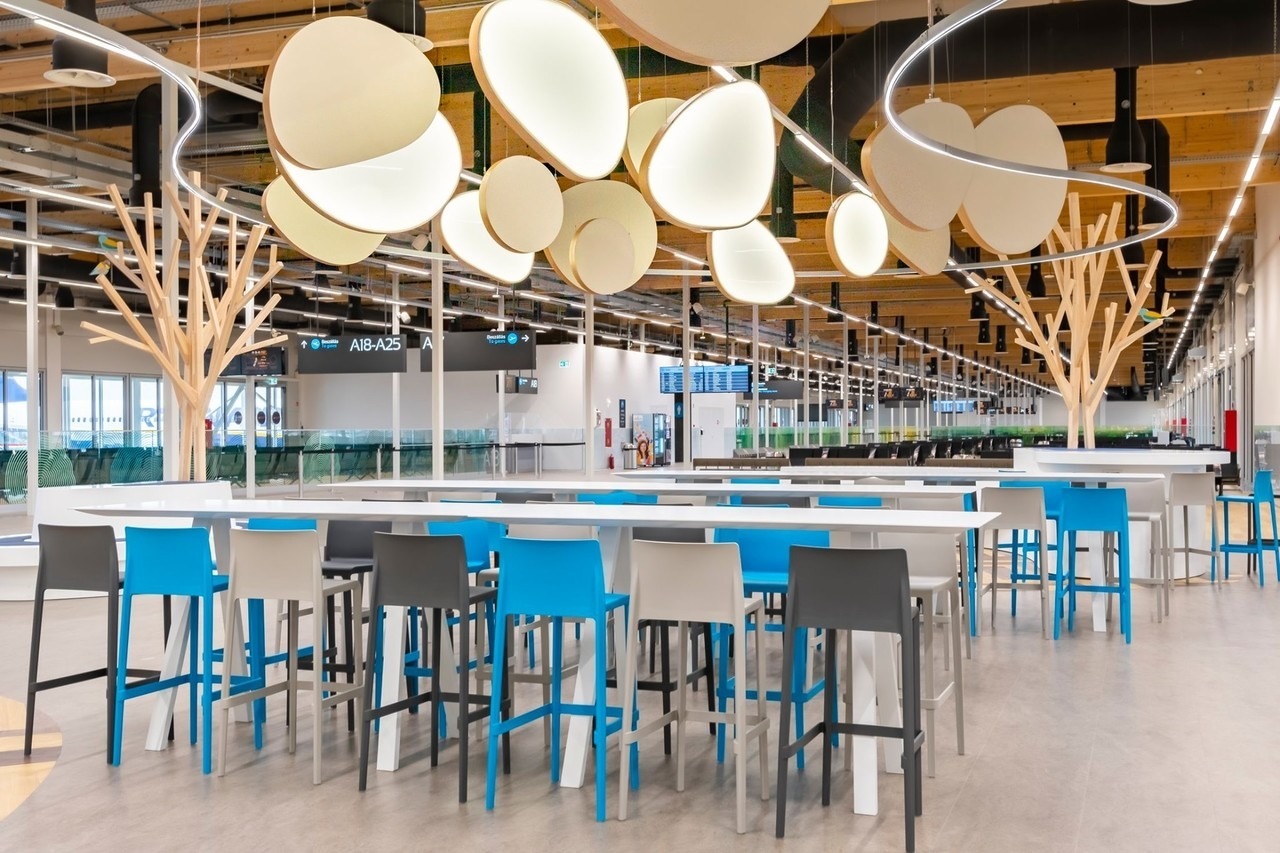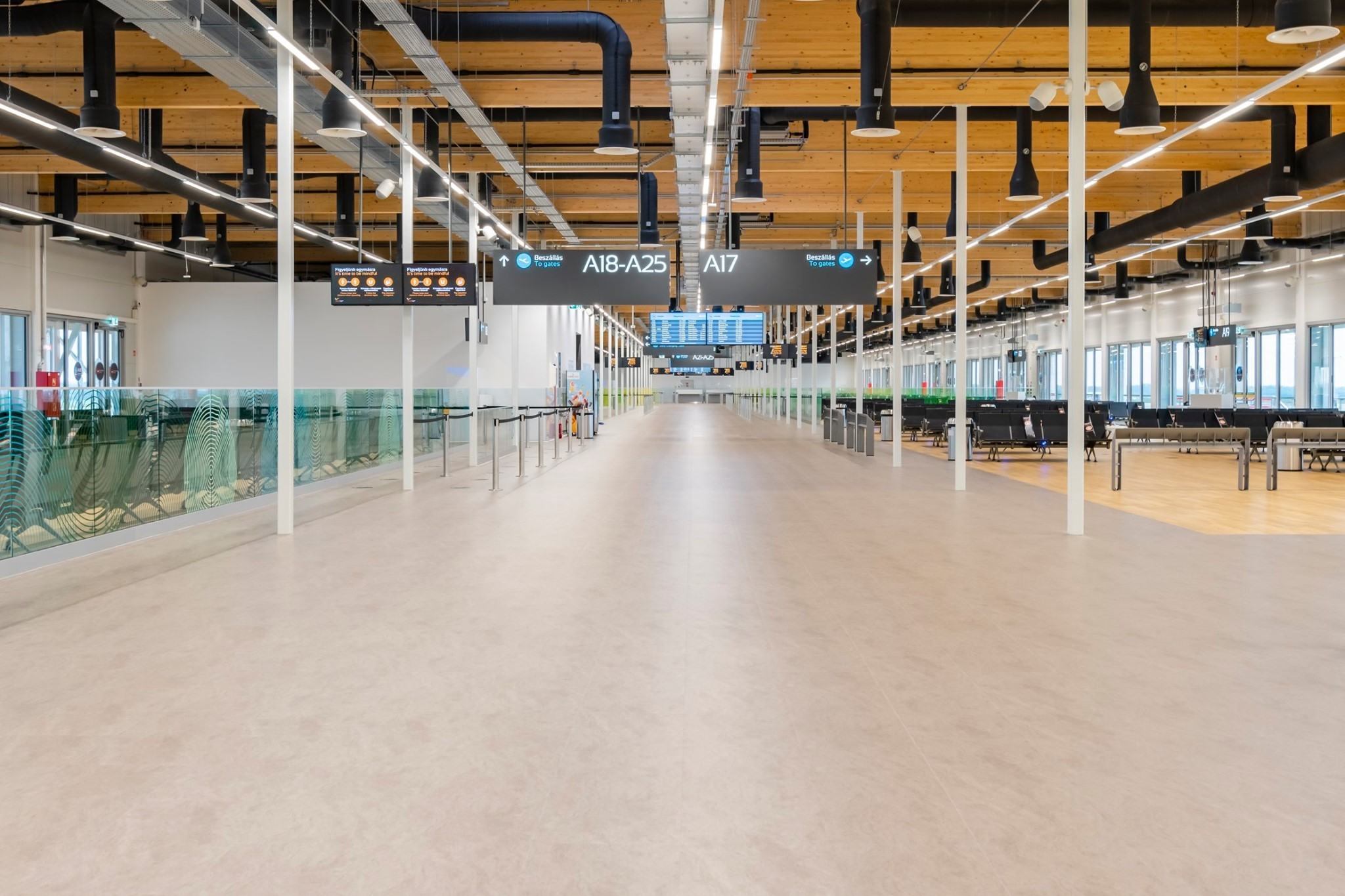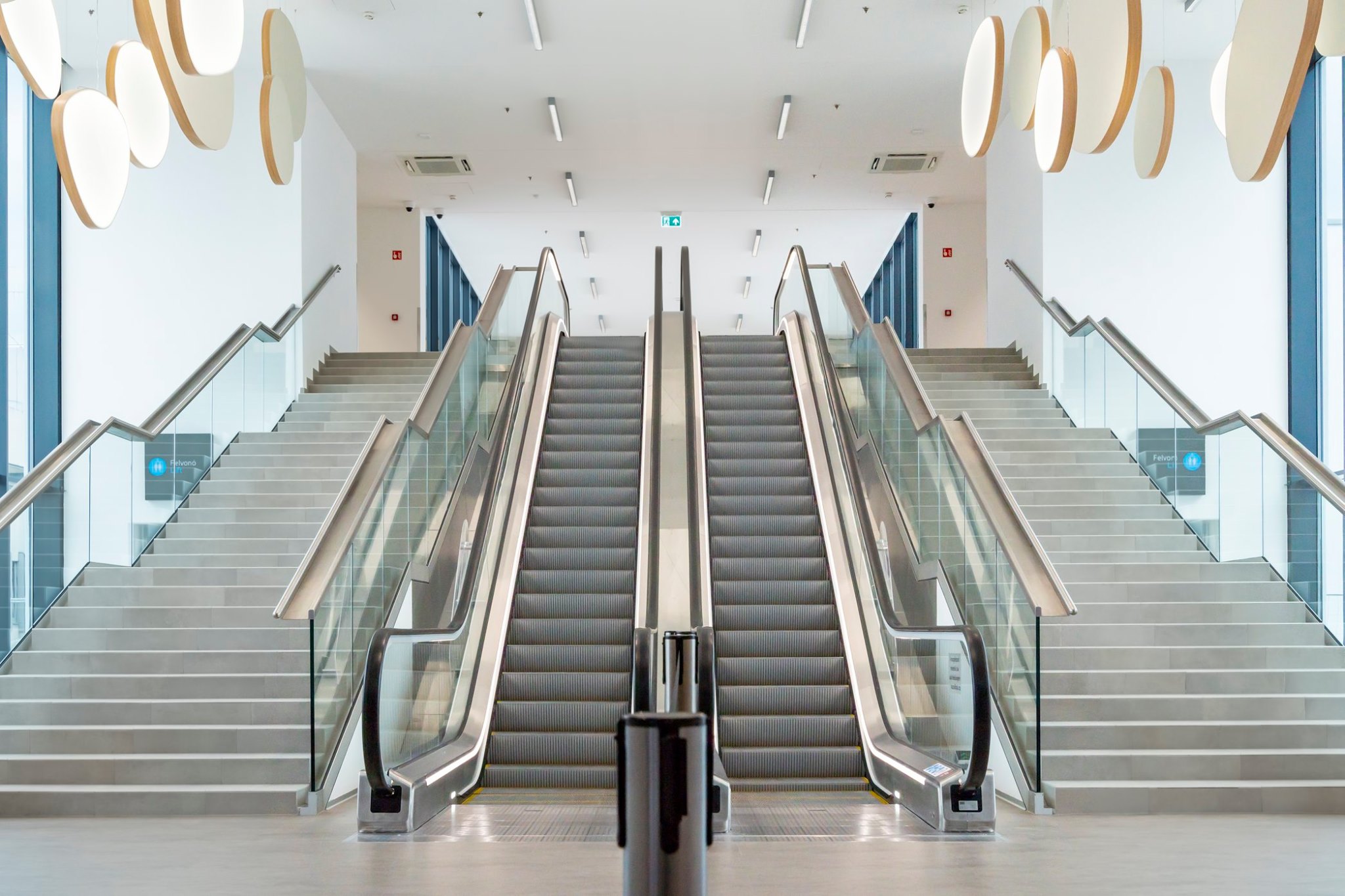More than 100 million euros spent for the development of Budapest Airport over 12 months
The last twelve months were decisive in the life of Budapest Airport, as the company completed several large-scale development projects and background developments which have made travel by air faster and more convenient, maintaining the high level of safety and security, further strengthening the regional significance of Ferenc Liszt International Airport. The developments have resulted in a perceptible enhancement of the quality of passenger services; the feedback received demonstrates that the passenger experience is continuously improving.
The past 12 months were all about developments at Budapest Airport, as the company spent EUR 100 million on various infrastructure development, capacity expansion and digital innovation projects. In spite of the negative impact of the coronavirus pandemic on the aviation industry, the development projects were not stopped. On the contrary, Budapest Airport managed to bring forward the implementation of several projects using the opportunity offered by low levels of traffic.
Over twelve months, the airport operator completed many projects that significantly enhanced the passenger experience. Budapest Airport is committed to the continued development of the airport going forward, which has a major role in ensuring sustainable operation and the continuous enhancement of passenger experience.
Infrastructural developments
The three largest projects last year were aimed at infrastructural development: pier 1 and the new baggage sorting hall were completed this year, and the BUD Cargo City was handed over at the end of last year.
The new 11 500-square-meter passenger pier was completed on 23 June, and it was handed over to passengers on 12 August.
Passengers can now spend their time before departure in a beautiful, comfortable and spacious environment that fully meets epidemiological requirements, at a stone’s throw from aircraft stands. The new pier was completed in record time, 339 days, with a price tag of EUR 33 million (HUF 11.5 billion), all financed by Budapest Airport.
In July, the construction of the external baggage sorting hall was also completed. The new building enables the extension of the baggage handling system in the SkyCourt. Works are now continuing with the installation of the baggage handling technology, to facilitate the extension of the baggage sorting and screening facility from the end of September already. Following the installation of the baggage handling technology, the capacity of the entire baggage handling system will increase significantly, making it possible to simultaneously service an increased number of flights. The system installed comprises a large number of elements that were produced in Hungary, thus supporting the national economy in multiple ways.
The new air cargo base was handed over last November. The Cargo City is now operating at full capacity, and as the air cargo gateway to Central-Eastern Europe, it has served as a crucial strategic point in the fight against the coronavirus. The BUD Cargo City offers a professional environment and a competitive advantage for the air freight industry, and could provide a leading role in the region for Budapest Airport and the Hungarian economy, facilitating the serving of cargo traffic more efficiently than ever before by ensuring the cooperation of market players at the same time and at the same place.
The new facility also provides a sound basis for further development; with its commissioning, the combined cargo capacity of the airport reached 250 000 tons per annum. The total project value was EUR 50 million.
In 2020, the roundabout leading to Terminal 2 was also completed. Thanks to the two-lane turbo roundabout, road access to the airport has become safer and faster. The roundabout was implemented with the aim to effectively serve, going forward, both the increasing passenger traffic of Terminal 2 and cargo vehicles turning off towards the Cargo City.
Terminal infrastructure
Keeping up with the advancing trends of self-service and automation, Budapest Airport recently implemented a number of forward-pointing technical developments which make it possible for passengers, for instance, to perform baggage check-in and boarding procedures themselves. Thanks to digital innovation, passage through the airport is accelerated, and extended passenger information systems make the process more calculable. The airport operator has installed super-wide and ultra-sharp 4K passenger information panels in the terminals, displaying flight information clearly and transparently.
Sixteen bag tag printer kiosks have also been made available in the check-in hall of Terminal 2B, enabling passengers to check in their bags on their own within just a few moments, when flying with airlines who already have joined the system, like for example Wizzair. With the help of this system, after scanning the barcode on the printed or electronic boarding pass, passengers can print the bag tags and attach them to their hold baggage themselves. Then, after scanning the bag tag, baggage can be simply placed onto the automated self-service bag drop counter. The roll-out of the devices is currently continuing in Terminal 2A.
All in all, the self-service option allows passengers a quicker process, while minimizing interaction with other persons, and thus helps to make traveling even safer during the epidemic.
The process of passenger security screening is also made smoother by an innovative new technology: larger electronic devices, such as laptops and hair dryers no longer have to be removed from hand baggage, as the new software is able to accurately screen them inside the bags. This innovation has only been implemented at a handful of airports in Europe, and Ferenc Liszt International Airport is one of them.
In the second half of last year, Budapest Airport and the National Police Command installed 12 automated passport control gates in the terminals, and automated boarding gates were also implemented at some of the boarding gates of Terminal 2A, again contributing to a quicker process with less human interaction, ultimately also increasing the safety of travel.
Capacity extensions; creating a new environment
Budapest Airport handed over two new passenger security screening lanes in June, increasing the number of screening lanes available in the terminals to 18 in total. With this capacity expansion, waiting time before security screening can remain below 15 minutes even in the busiest periods, in line with relevant international standards. The new lanes are equipped with an automated system enabling the introduction of the most advanced method of screening cabin baggage, called remote screening. This allows X-ray image analysis to be performed offsite, in a quiet environment, for better concentration.
Over the past few years, bathroom capacity at the airport was increased by 70% on average, having been doubled at the restaurants on the mezzanine level of the SkyCourt, and after the capacity expansions in Terminal 2A until 2016, sanitary blocks were also refurbished in the arrivals hall of Terminal 2B, where toilet capacity will be tripled once the works are completed.
The airport operator also used the period of low traffic for the continuous development of the airport environment.
The curbside, the area in front of the terminal building dedicated to parking as well as passenger drop-off and pick-up, has been refurbished, and the floor tiles in the check-in hall of Terminal 2A have been replaced. The new light-colored floor creates a clear, simple and transparent space for passengers. The walkway between the terminal and the Business and Terminal Parking area has been fully renewed, including nice landscaping and shelter against weather conditions. Runways and heavily used taxiways of the airport have also been refurbished in order to maintain aviation safety. The taxiway close to Pier B is reinforced, to welcome back wide body aircraft soon. Works include the sustainable re-use of the former concrete layers, as construction material (now serving as stabilizer piles), thus heavily reducing the need for new materials, as well avoiding construction waste.
Source: www.bud.hu/en
please make a donation here
Hot news
What happened today in Hungary – 26 July, 2024
Drama: number of births in a 20-year low in Hungary
Yay or nay? – 6 odd Hungarian delicacies that make our skin crawl
Budapest tourism “exploded” this past weekend
Container transport in Budapest may stop: How will this affect Hungarian economy?
Minister: Hungary will protect its territory by every means possible









1 Comment
whoever had the idea to place the external baggage sorting hall at the open apron in front the Skycourt is an incompetent person and should fired… it should have been taken underground, they killed the view.. again, cheap airport comes up with cheap solutions, the same with new pier, it will make it difficult to make a proper Terminal C (which is what we really need) with piers attached…